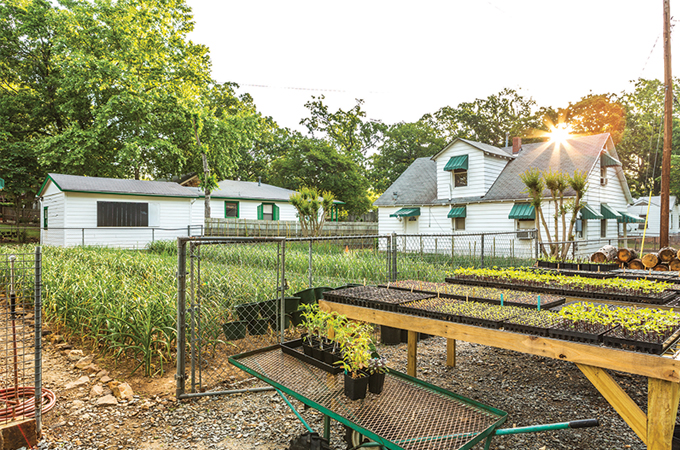The popularity of fresh, seasonal produce has grown exponentially in recent decades. Whether it’s growing our own herbs in a few pots on the patio, or shopping the local farmers market on the weekend, we want fresh food, we want to know where it comes from, and we want to get to know the people who grow it. Urban farming is part of this movement.
[urban movement]
Simply put, urban farming means growing or producing food in the city or a heavily populated area. It differs from community gardening in that it assumes a form of commerce rather than growing produce for personal consumption.
“We want people to think and act differently about their food,” says Hiryak. “We’re trying to reintroduce people to food in a way that, I think, we’ve lost as a culture.” LRUF gives Hiryak the opportunity to do what he loves: farm and connect people to local, seasonal foods. He sees urban farming as a way to put people back in touch with the natural environment; it’s a way to feed people in their heart and soul.
“We’re showing people what’s happening in their own backyard and helping them connect to their surroundings,” says Hiryak. “When people can gather together around good food, it can really open them up for meaningful discussions about what’s going in on their communities.” Food has traditionally been about more than eating; it brings people together to ‘break bread’ and bond as a community.
During the boom decades, post-World War II Americans embraced food ‘innovations’ like TV dinners, microwavable foods and non-seasonal produce made available by air shipments, but today’s consumers are coming back to local, sustainable foods. So the more local, the better: people see that this is the way to have fresher food, leave a smaller carbon footprint, and connect with the earth through its mediums: the farmers.
[feeding communities]
Urban farming can go a long way in addressing the food insecurity issues facing our nation. It takes a collaborative effort to feed our communities. Operations like LRUF as well as Urban Harvest STL (urbanharveststl.org) and Gateway Greening (gatewaygreening.org) are not just focused on the commerce side of farming—they’re focused on a
wareness, education and empowerment. These groups want to show others what they can do for themselves and their community with some seeds and some patience.
Photos: Rhett Peek
Pictured: Little Rock Urban Farming is located right in the heart of the city.
[P. Allen Smith, host of two public television programs, is an award-winning designer and gardening expert. He is the author of several books, including his Seasonal Recipes from the Garden.]
